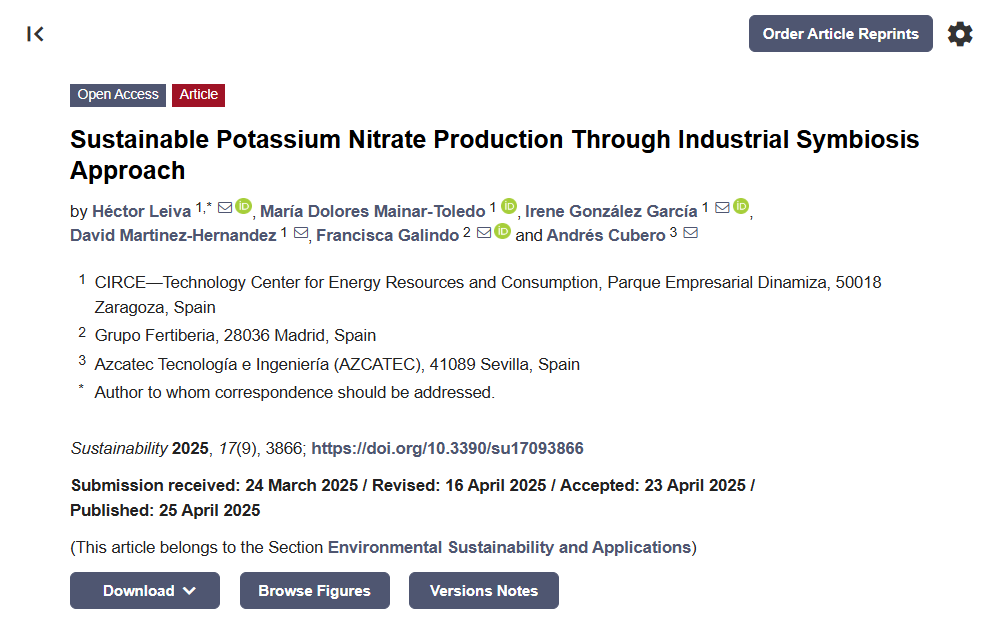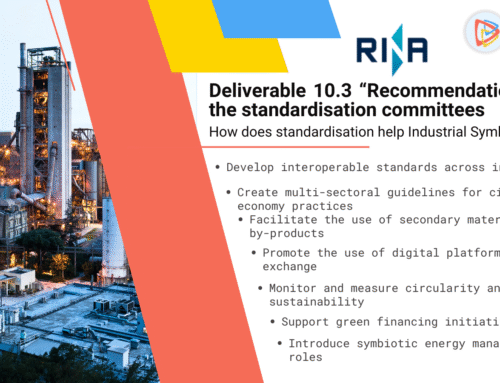Industrial symbiosis (IS) continues to prove its value as a strategy for enhancing sustainability and boosting economic performance across industrial sectors. A newly published study, “Sustainable Potassium Nitrate Production Through Industrial Symbiosis Approach”, by researchers from CIRCE Technology Center, Grupo Fertiberia, and AZCATEC, sheds new light on how IS can support both environmental and economic goals in the fertiliser industry.
Focusing on the Escombreras industrial area in Spain, one of the CORALIS Lighthouse sites, the study applies life cycle assessment (LCA) and life cycle cost analysis (LCC) methodologies to compare conventional potassium nitrate (KNO₃) production with improved IS-based processes. Using the ReCiPe method through SimaPro software, and supported by data from the Ecoinvent 3.8 database, the research offers a comprehensive view of the benefits brought by circular economy strategies.
By integrating industrial symbiosis, the production of KNO₃ not only achieves significant reductions in environmental impacts but also improves cost-efficiency, making the process both greener and more competitive. This highlights the transformative potential of IS in advancing sustainable industrial practices and achieving decarbonisation objectives.
The study reinforces the importance of adopting IS strategies to drive sustainability in traditionally resource-intensive sectors, and provides a strong case for the broader application of circular economy principles within the European industrial landscape.
Read the full paper here.






